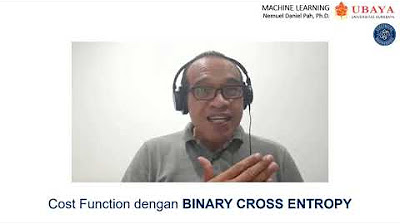Machine Learning Crash Course: Intro & What's New
Summary
TLDRGoogle has revamped its Machine Learning Crash Course, offering an updated curriculum that retains core ML principles like linear and logistic regression, while integrating recent AI advancements such as large language models and automated machine learning. The course emphasizes data, fairness in AI, and addresses societal biases. It also introduces interactive widgets for a hands-on learning experience and Python Colab exercises using the Keras API, aiming to make machine learning education more engaging and accessible.
Takeaways
- 🚀 Google has updated its Machine Learning Crash Course, making it more relevant to current AI advancements.
- 📚 The course continues to cover fundamental machine learning principles including linear and logistic regression, classification, and neural networks.
- 🔍 New modules have been added to focus on recent AI developments like large language models and automated machine learning.
- 📈 Emphasis is placed on the importance of data in machine learning, with three new modules dedicated to data-related topics.
- 🧐 The course addresses the issue of AI inheriting societal biases and provides ways to identify and correct inequities in AI systems.
- 🤖 Interactive learning has been enhanced with new educational widgets designed for a more engaging learning experience.
- 💻 For those who prefer coding, the course offers Python Colab exercises using the Keras API.
- 📝 Multiple choice exercises are included to test and reinforce knowledge gained from the course.
- 🌐 The course is designed for a global audience, as millions have used the original course to learn about machine learning.
- 👥 The course is a collaborative effort, featuring contributions from multiple Google experts like Peter Norvig, Tulsee Doshi, Yul Kwon, and Eve Anderson.
- 🎓 The updated Machine Learning Crash Course aims to educate both beginners and those looking to refresh their understanding of machine learning.
Q & A
What was released by Google in 2018?
-Google released the Machine Learning Crash Course in 2018.
What is the purpose of the Machine Learning Crash Course?
-The purpose of the Machine Learning Crash Course is to teach people how machine learning works and how it could be applied for their benefit.
What is new in the reimagined Machine Learning Crash Course?
-The reimagined Machine Learning Crash Course includes new modules focused on recent advances in AI such as large language models and automated machine learning, along with three modules specifically on data.
Which fundamental machine learning principles are taught in the course?
-The course teaches fundamental machine learning principles such as linear regression, logistic regression, classification, embeddings, overfitting, and neural networks.
Why is the focus on data important in the Machine Learning Crash Course?
-Data is the lifeblood of machine learning, hence the course has developed modules focused on data to ensure a strong foundation in handling and understanding it.
How does the Machine Learning Crash Course address the issue of fairness in AI systems?
-The course provides different perspectives on complex fairness issues and helps learners identify and fix inequities in AI systems.
What was the feedback from students regarding the course materials?
-Student feedback indicated a strong desire for more interactive learning experiences.
How has the new Machine Learning Crash Course incorporated interactivity?
-The new course includes highly interactive educational widgets developed specifically for it, allowing learners to engage with AI principles in a hands-on manner.
What coding tools does the course provide for learners who prefer practical exercises?
-The course provides Python Colab programming exercises using the popular Keras API for those who prefer to learn through coding.
How can learners test their knowledge after going through the course materials?
-Learners can test their knowledge through dozens of multiple-choice exercises provided in the course.
What is the intended outcome for learners who complete the Machine Learning Crash Course?
-The intended outcome is for learners to enjoy learning or relearning essential machine learning principles through the engaging course content.
Outlines

Esta sección está disponible solo para usuarios con suscripción. Por favor, mejora tu plan para acceder a esta parte.
Mejorar ahoraMindmap

Esta sección está disponible solo para usuarios con suscripción. Por favor, mejora tu plan para acceder a esta parte.
Mejorar ahoraKeywords

Esta sección está disponible solo para usuarios con suscripción. Por favor, mejora tu plan para acceder a esta parte.
Mejorar ahoraHighlights

Esta sección está disponible solo para usuarios con suscripción. Por favor, mejora tu plan para acceder a esta parte.
Mejorar ahoraTranscripts

Esta sección está disponible solo para usuarios con suscripción. Por favor, mejora tu plan para acceder a esta parte.
Mejorar ahoraVer Más Videos Relacionados

4. Binary Cross Entropy

Machine Learning Specialization on Coursera | Review

PERCOBAAN

Explainable AI Tutorial (XAI) | Part- 1 | Types of Machine Learning | Python

Comparison Of Machine Learning Models In Loan Approval Prediction

AZ-900 Episode 16 | Azure Artificial Intelligence (AI) Services | Machine Learning Studio & Service
5.0 / 5 (0 votes)
